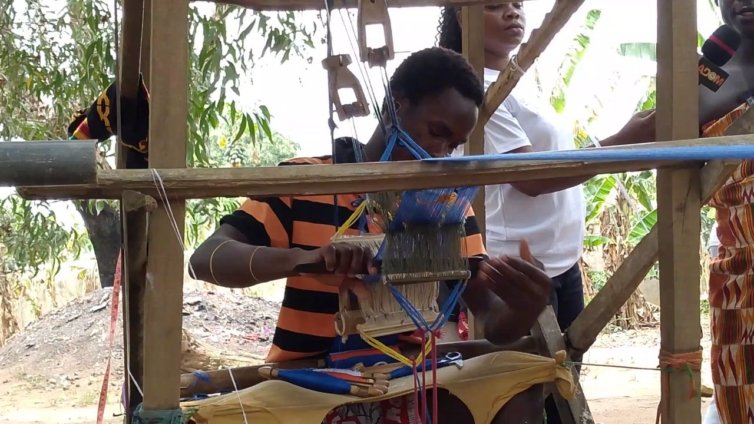Traditional Kente cloth weavers in Bonwire, Ashanti Region, are appealing to the government for a dedicated working space and a local thread factory.
The weavers are grappling with the high cost of imported threads, which is putting their craft at risk.
They argue that a local thread factory would not only reduce their production costs but also create more job opportunities in the sector. They believe that these measures would help sustain their craft and preserve this important aspect of Ghanaian cultural heritage.
“We cannot continue to rely on expensive imported threads. It’s becoming increasingly difficult to sustain our craft. A local thread factory would not only make thread more affordable but also create employment opportunities for our people,” a kente weaver in Bonwire said.
Bonwire is a historic community renowned for its vibrant kente weaving tradition, which holds a significant place in Ghana’s cultural heritage.
The town is celebrated as the birthplace of kente cloth, with its history tracing back to two brothers, Kuragu and Ameyaw, who learned the art of weaving from observing a spider spinning its web. They introduced this art to the people of Bonwire, marking the beginning of kente weaving in the region.
Today, Bonwire remains a center for kente weaving, attracting visitors who come to purchase kente and witness the artistic work of the weavers. The cloth is not just a product but a symbol of Ghanaian heritage and pride, with each color and design holding significant meaning. Certain designs are reserved for special occasions like funerals, royal ceremonies, and traditional marriages.
Despite its rich cultural significance, the weavers in Bonwire face challenges due to the increasing production costs, making it difficult for them to compete in the market.

